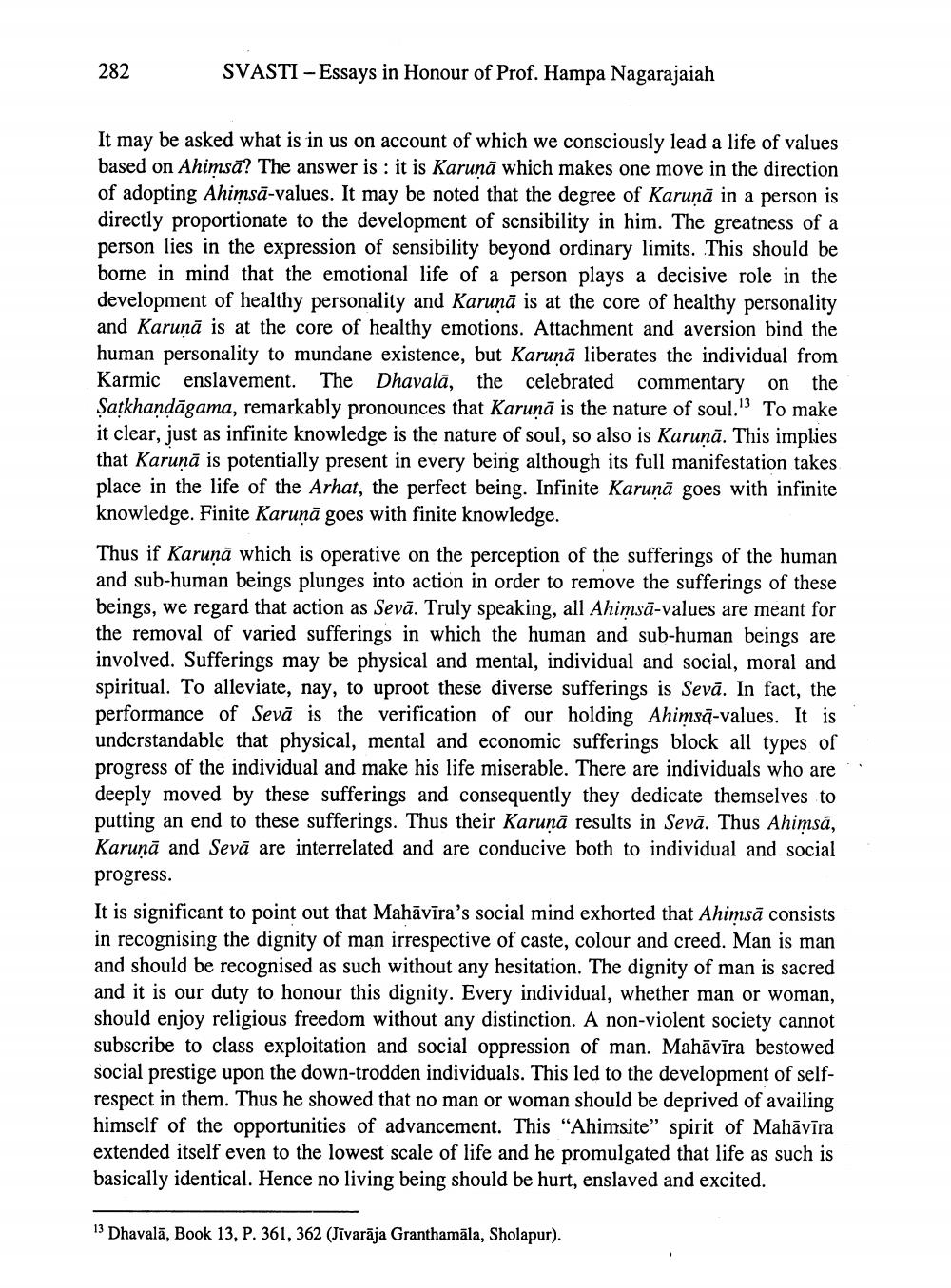________________
282
SVASTI - Essays in Honour of Prof. Hampa Nagarajaiah
It may be asked what is in us on account of which we consciously lead a life of values based on Ahimsā? The answer is : it is Karunā which makes one move in the direction of adopting Ahimsā-values. It may be noted that the degree of Karunā in a person is directly proportionate to the development of sensibility in him. The greatness of a person lies in the expression of sensibility beyond ordinary limits. This should be borne in mind that the emotional life of a person plays a decisive role in the development of healthy personality and Karunā is at the core of healthy personality and Karuņā is at the core of healthy emotions. Attachment and aversion bind the human personality to mundane existence, but Karunā liberates the individual from Karmic enslavement. The Dhavalā, the celebrated commentary on the Şarkhandāgama, remarkably pronounces that Karunā is the nature of soul.' To make it clear, just as infinite knowledge is the nature of soul, so also is Karunā. This implies that Karunā is potentially present in every being although its full manifestation takes place in the life of the Arhat, the perfect being. Infinite Karunā goes with infinite knowledge. Finite Karunā goes with finite knowledge.
Thus if Karuņā which is operative on the perception of the sufferings of the human and sub-human beings plunges into action in order to remove the sufferings of these beings, we regard that action as Sevā. Truly speaking, all Ahimsā-values are meant for the removal of varied sufferings in which the human and sub-human beings are involved. Sufferings may be physical and mental, individual and social, moral and spiritual. To alleviate, nay, to uproot these diverse sufferings is Sevā. In fact, the performance of Sevā is the verification of our holding Ahimsa-values. It is understandable that physical, mental and economic sufferings block all types of progress of the individual and make his life miserable. There are individuals who are deeply moved by these sufferings and consequently they dedicate themselves to putting an end to these sufferings. Thus their Karuņā results in Sevā. Thus Ahimsā, Karunā and Sevā are interrelated and are conducive both to individual and social progress. It is significant to point out that Mahāvīra's social mind exhorted that Ahimsā consists in recognising the dignity of man irrespective of caste, colour and creed. Man is man and should be recognised as such without any hesitation. The dignity of man is sacred and it is our duty to honour this dignity. Every individual, whether man or woman, should enjoy religious freedom without any distinction. A non-violent society cannot subscribe to class exploitation and social oppression of man. Mahāvīra bestowed social prestige upon the down-trodden individuals. This led to the development of selfrespect in them. Thus he showed that no man or woman should be deprived of availing himself of the opportunities of advancement. This "Ahimsite" spirit of Mahāvīra extended itself even to the lowest scale of life and he promulgated that life as such is basically identical. Hence no living being should be hurt, enslaved and excited.
13 Dhavalā, Book 13, P. 361, 362 (Jīvarāja Granthamāla, Sholapur).




